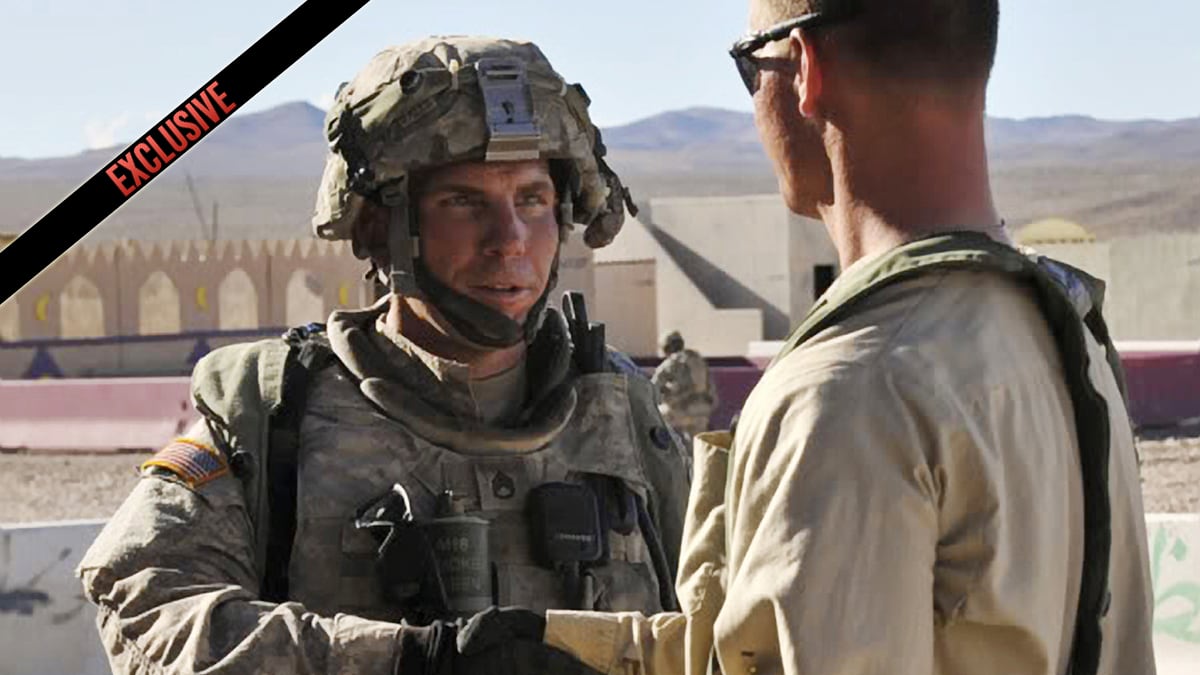Robert Bales, the U.S. Army staff sergeant accused of massacring 16 Afghan civilians in March, hopes that his coming military trial will help bring the decade-long war to an end, his attorney told The Daily Beast this week.

“Sergeant Bales believes that the insanity and hopelessness of this war is more apparent because of these allegations,” Seattle lawyer John Henry Browne said. “He’s finding himself in a situation where maybe he can do some good.”
Bales, 39, will face the death penalty at his coming court-martial on 16 counts of murder, six counts of attempted murder, and six counts of assault. The U.S. military has not executed one of its own since 1961, and Browne told The Daily Beast that the decision to seek the death penalty for his client is “absurd.”
“Yeah, running around without any body armor [and] wearing a cape,” Browne said sarcastically, in reference to witness accounts that his client returned from his predawn rampage covered in blood and wearing a cape. “Normal behavior.”
During a weeklong Article 32 hearing (the rough military equivalent to a grand jury) in November, prosecutors accused Bales of a “clear-headed” massacre, painting him as a rogue soldier who killed nine children and seven adults after sneaking away from his remote southern Afghanistan base on March 11. His fellow troops testified that they saw Bales return to the base later that morning covered in blood, that he woke up another soldier in the middle of the night and reported that he’d shot several people in one village and was heading out again for more. Army investigators testified that Bales did test positive for steroids three days after the killings, and other soldiers said he had been drinking earlier that evening.
That evidence was enough to convince a military judge to refer court-martial charges seeking the death penalty to a jury of commissioned officers. For Bales to be executed, that group would have to unanimously agree that not only is he guilty of the crime but that at least one “aggravating” factor exists that “substantially” outweighs any mitigating circumstances.
Browne says he met with members of the prosecuting team before the Article 32 hearing and asked them to consider the “many mitigating circumstances” that he said make the death penalty unwarranted here. Among them: that Bales was serving his fourth tour in as many years, that he had post-traumatic stress disorder and a traumatic brain injury. He described Bales as one of the many soldiers who worked as “assistants, slaves to Special Forces, which encouraged him to take heavy doses of alcohol, steroids and sleeping pills”—without going so far as to say Bales actually did the shooting. The soldier “still has no memory of much of that evening,” the lawyer said.
An Army public affairs officer did not respond to a request for comment on the case.
Browne, though, said he continues to wonder if there was a second shooter in the massacre—a notion he said the Army is dismissing to paint his client as a “rogue” soldier and shift blame from the military’s institutional shortcomings.
“The Army is trying to pass the buck and cover up the many mistakes that sent Robert back, knowing he had PTSD and a head injury and a failure to treat them, to clear him as ‘good to go,’” Browne said. “These mistakes will now be known at the court martial.”
After the trial, Browne said, he and his client will elaborate on the events of March 11, when “we can talk more publicly about what happened.” Meanwhile, “as much as I can make this a platform for the war in general, I’m going to. What I see when I go over there is a bunch of poor kids fighting for ideals they no longer believe in…Walking around Kandahar Air Force Base is like walking around a mental institution. You can see it on their faces. They look at the ground, they don’t smile. It’s totally depressing.”
Whether that message resonates beyond the coverage of Bales case, though, remains to be seen.
“I think we need to look at these prolonged wars where the outcome is not clear,” said former Army doctor and psychiatrist Harry Croft, author of the PTSD book I Always Sit With My Back to the Wall, who suggested that Bales’s actions could have been a consequence of “repeated deployments, short ‘dwell’ times between deployments” and other factors. “I’m not sure this relatively isolated event will get much attention. There will be curiosity during the trial, but I don’t think the memory will last long.
“It’s too easy to write it off as, ‘Well, some guy just snapped.’”




